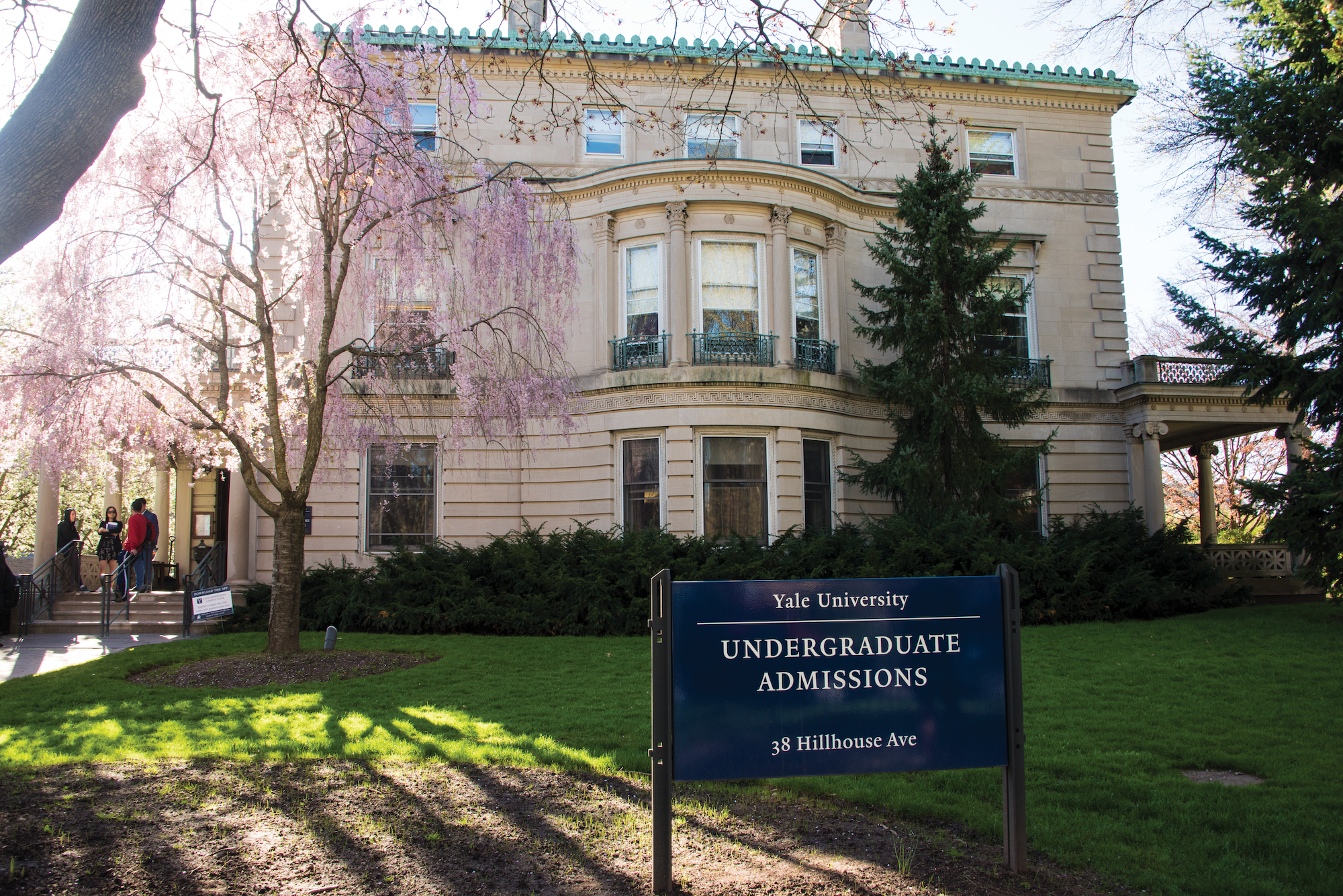
Madelyn Kumar, Senior Photographer
On Thursday, Students for Fair Admissions — the plaintiff in the high-profile admissions lawsuit against Harvard University — filed a lawsuit against Yale alleging that the University discriminates against white and Asian American applicants.
SFFA’s complaint, which was filed Thursday morning in the District Court of Connecticut, is reminiscent of the United States Department of Justice’s October lawsuit against Yale, which also alleged discrimination against white and Asian American applicants. In late October, SFFA filed a motion to intervene in that DOJ case, but the motion was denied in January. On Feb. 3, the newly-elected President Joe Biden’s DOJ dropped the lawsuit against Yale.
Both the now-dropped DOJ lawsuit and the new SFFA lawsuit allege that Yale violates Title VI of the 1964 Civil Rights Act, which prohibits any institution or activity receiving federal funding from discriminating on the basis of race, color or national origin.
“Yale, Harvard, the University of North Carolina, the University of Texas and many dozens of other highly competitive colleges and universities employ admissions practices that are discriminatory, unnecessary, and unconstitutional,” Edward Blum, the president of SFFA, wrote in a press release. “Students applying to undergraduate and postgraduate programs should be judged on their individual talents, character, academic skills, extracurricular achievements and socio-economic background but not the color of their skin.”
During the DOJ lawsuit in the fall, Yale consistently maintained that its admissions process complied with federal law. In October, University President Peter Salovey called the DOJ’s claims “baseless” multiple times. Salovey wrote in a community-wide email last fall that Yale would not change its admissions practices and that it “look[ed] forward to defending [the] policies in court.” On Thursday, University Spokesperson Karen Peart reiterated these sentiments and said that Yale remains committed to maintaining a diverse student body.
“For decades, Yale has created an academically excellent and diverse student body through admissions policies that comply fully with the decisions of the Supreme Court and that do not discriminate against any racial or ethnic group,” Peart wrote in an email to the News. “The lawsuit that SFFA filed today simply resurrects the misleading statistics, factual errors, and legal misstatements that the Trump administration included in its suit, which the Department of Justice has since withdrawn.”
SFFA also filed a petition on Thursday asking the Supreme Court to review an appellate court’s decision that upheld Harvard’s admissions practices. The petition requires the approval of four justices in order for the Supreme Court to hear the case. Should the Supreme Court admit the case, the court’s 6–3 conservative majority could change precedent on affirmative action in higher education admissions.
Derek Black, a constitutional law professor at the University of South Carolina who specializes in education policy, told the News that he believes both Yale and Harvard clearly comply with Supreme Court precedent regarding affirmative action. SFFA’s lawsuits, he said, are based on “fallacious claims” that have no merit.
The last time affirmative action was tried in the Supreme Court was Fisher v. University of Texas in 2016. Blum brought forward the case on behalf of Fisher, a white student who was denied admission from the University of Texas. Justice Anthony Kennedy was the deciding vote in the Supreme Court’s decision to uphold affirmative action. According to Black, because the court’s membership has changed — Justice Brett Kavanaugh and Justice Amy Coney Barrett have replaced Kennedy and Justice Ruth Bader Ginsburg — the balance of the court is more conservative and could render a different decision than in 2016.
“Of course, that’s not how the Constitution is supposed to work,” Black said. “If the court decided it correctly and fairly in past cases, which I would say that it did, well, the Constitution hasn’t changed. … But it seems that the Supreme Court has picked up two more anti-affirmative action votes, so this could be the case [that overturns affirmative action.]”
The Supreme Court has twice upheld affirmative action since the court originally found it constitutional in Regents of the University of California v. Bakke in 1978.
Amelia Davidson | amelia.davidson@yale.edu







